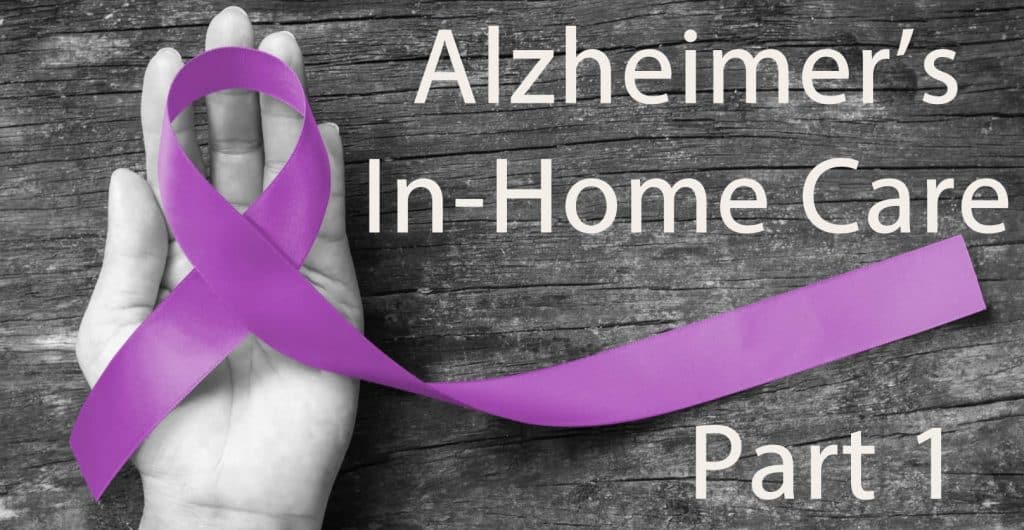
Alzheimer’s disease, a form of dementia, is a relentless condition that impacts memory, cognition, and behavior. As the sixth-leading cause of death in the United States, its prevalence is staggering. This article, part one of our series, sheds light on crucial facts, statistics, and essential tips surrounding Alzheimer’s in-home care. Whether you’re a devoted family caregiver or a dedicated professional caregiver, these insights and strategies can significantly improve patient care at home.
Alarming Facts and Statistics:
- Physical Impact: Contrary to common belief, Alzheimer’s is not just a mental ailment. It’s a physical disease that causes the brain to shrink over time, leading to the gradual deterioration of cognitive functions.
- Prevalence: With approximately 800,000 Americans living with Alzheimer’s alone, this disease affects 15% of the population. The figures are expected to rise significantly in the coming years.
- Economic Burden: The financial impact is substantial, with costs estimated at $290 billion in 2019 alone. Projections indicate that these expenses could skyrocket to over $1.1 trillion by 2050.
- Rising Mortality: Heart disease-related deaths have dropped by 9% between 2000 and 2017, but Alzheimer’s-related deaths have surged by a staggering 145% during the same period.
- Frequency: The disease strikes relentlessly, with a new case emerging every 65 seconds in the US. In a startling comparison, Alzheimer’s claims more lives than both breast and prostate cancer combined.
- Demographic Disparity: Half of those aged 85 and above grapple with Alzheimer’s, with a significant majority being women. Astonishingly, one in three seniors eventually passes away due to Alzheimer’s or another form of dementia.
- Underdiagnosis: Shockingly, over 50% of the 5.4 million Americans with Alzheimer’s may be unaware of their condition, making early detection and intervention crucial.
- Early-Onset: While Alzheimer’s is often associated with aging, up to 5% of affected individuals experience early-onset symptoms, which can begin as early as age 30.
Helpful Tips and Tactics for Alzheimer’s In-Home Care:
- Love and Patience: Individuals with dementia often feel anxious and disoriented. Demonstrating patience, kindness, and love can significantly alleviate their distress.
- Personalization: Knowing the patient on a personal level can make caregiving more effective. Engage them in conversations about their past, interests, and cherished memories.
- Structured Routine: Collaborate with professionals to devise a daily plan of care. A consistent routine helps reduce confusion and anxiety, making tasks smoother for both the caregiver and patient.
- Conflict Avoidance: Instead of arguing, acknowledge their emotions and provide comfort. Use a friendly tone, speak slowly, and employ hand-under-hand gestures to establish a connection.
- Distracting Activities: When agitation arises, propose a change of topic or a different activity. Even moving to a different room or going for a walk can help redirect their focus.
- Therapeutic Music: Studies reveal that music can calm agitation and aggression, particularly during challenging times like meals or bathing. Prioritize their musical preferences for maximum effectiveness.
- Ensuring Safety: A safe environment is paramount. Remove potentially hazardous objects to prevent accidents, and make necessary home modifications to ensure their well-being.
Alzheimer’s disease exacts a profound toll on individuals and their families. As the first part of our series on Alzheimer’s in-home care, this article has highlighted critical facts, statistics, and valuable strategies for effective patient care at home. Whether you’re a family caregiver navigating the challenges of caring for a loved one or a professional caregiver seeking to provide the best possible support, these insights and tips are the cornerstone of compassionate and effective care.
Stay tuned for part two of this series, where we delve deeper into creating a safe and supportive environment for Alzheimer’s patients at home. If you need assistance with Alzheimer’s in-home care, don’t hesitate to reach out to SeniorCare Companions Inc. at 631-581-9000 or the Alzheimer’s Disease Resource Center Long Island NY (ADRC) at 631-580-5100. Together, we can make a positive impact on the lives of those affected by this condition.

